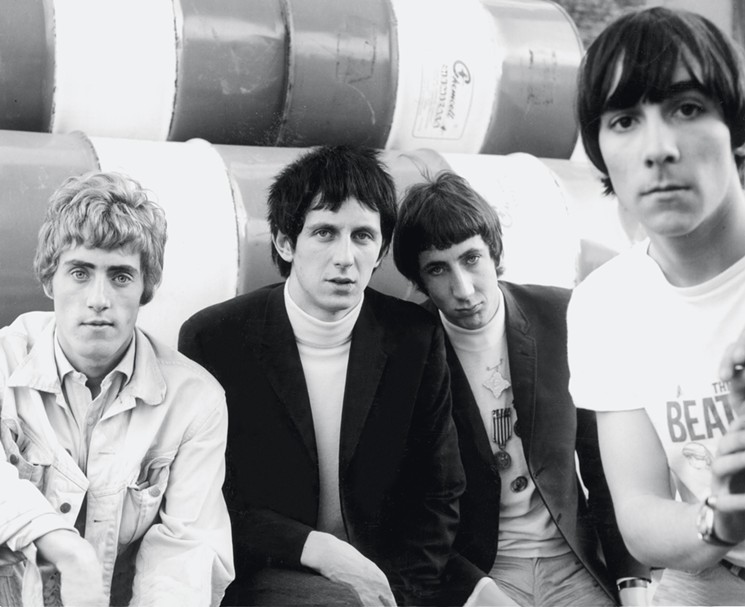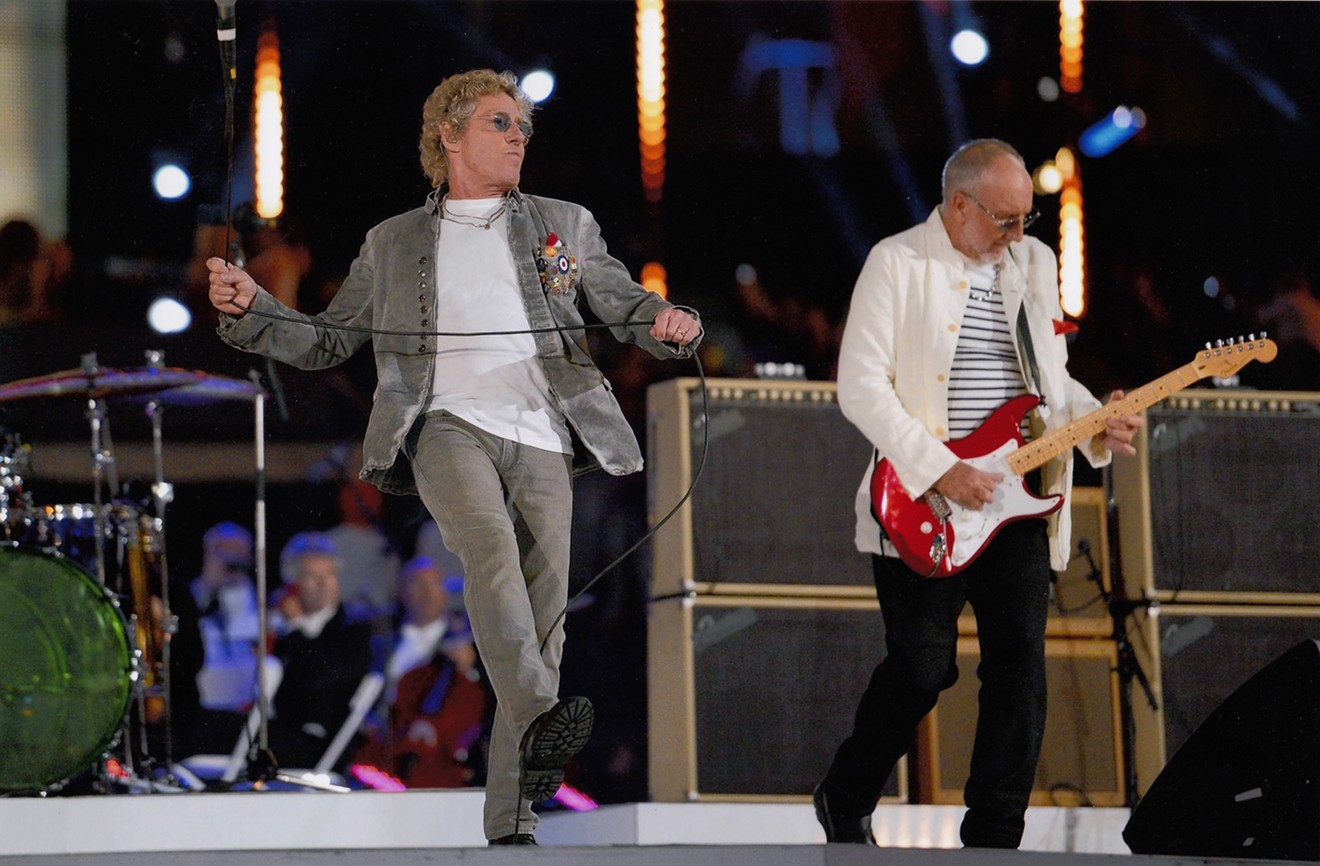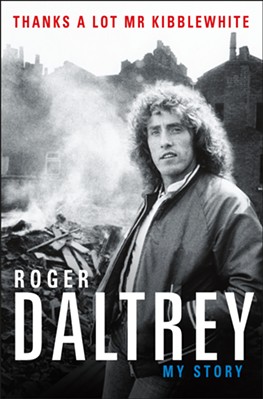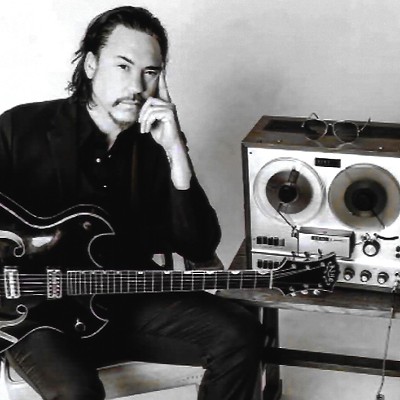By Roger Daltrey
259 pp.
$30
Henry Holt
In the realm of the Who, it often seemed like lead singer Roger Daltrey was the only adult in the room for much of their bombastic career. Despite a penchant back in the day for bare chests and fringed vests, he didn’t carry the offstage baggage of Tortured Artist Pete Townshend, the Dark Stoicism of John Entwistle, or the Manic Lunacy of the needy and attention-seeking Keith Moon.
No, he approached his career in the solid, workman-like fashion of his upbringing. After all, he had to – just had to – find a way out of a life working in a sheet metal factory.
Even when he was fired from the band he formed for flushing bags of Townshend and Moon’s speed pills down the toilet (it made their playing way too fast), the other three had to have him back. Because he wasn’t just the right front man for the Who, but the perfect front man. Even if by Daltrey’s own admission it took until they started performing the Tommy record live for him to find his own voice.
In this memoir, Daltrey relays a number of familiar stories from the Who biography – but with the added insight of his perspective. Like how he watched Townshend and Jimi Hendrix argue over who would play first at the Monterey Pop Festival since both acts destroyed their guitars and neither wanted to seem like a copycat (Townshend won the coin toss and went on first. Hendrix upped the ante later by setting his guitar on fire).
For their set at Woodstock, Daltrey says the experience was wet and miserable and organized poorly as the band took the stage more than 10 hours after they were scheduled. Though even he admits hitting the vocal crescendo of “See Me, Feel Me” just as the sun was coming up over half a million people was pretty damn once-in-a-lifetime cool.
Or while wildman drummer Keith Moon’s constant antics of hotel trashing (shoving TVs out of windows or supergluing glassware to the ceiling) made for good copy, it got very annoying and didn’t give Daltrey much sleep that the vocalist needed. Tired of being thrown out of hotels at 3 a.m. because of Moon’s latest shenanigans, he took to staying in a separate hotel. So he wasn’t’ there when Moon earned the Who a lifetime ban from the Holiday Inn chain and was arrested after a wild party to celebrate his 21st birthday ended with Moon driving his car into the swimming pool.
Later, as Moon became a victim of his own wild lifestyle mixed with drugs and depression, Daltrey says it was him to whom the drummer would confide before overdosing on prescription medication in 1978 (Entwistle would die an even more “rock and roll” passing – in a hotel room with a woman and cocaine on the eve of the band’s 2002 tour). Daltrey never got on with Moon’s replacement, Small Faces/Faces drummer Kenney Jones who recently put out his own memoir. Let’s just say they have widely varying opinions of Jones’ stint with the band and his subsequent Daltrey-instigated firing.

At the photo shoot for "My Generation," 1965: Roger Daltrey, John Entwistle, Pete Townshend, Keith Moon. Daltrey had to put product in his hair in the early days to straighten out his curly locks.
Photo by David Wedgbury-Wedgebury Archives/Courtesy of Henry Holt
The relationship between the two – the only two surviving members of the group – has long been fractious.
When Daltrey started twirling his microphone garnering audience attention, Townshend’s jumping and arm windmilling became even bigger. Though both have readily admitted that they needed the other’s musical contributions to make the band work. Still, Daltrey holds no punches (no pun intended) about his sometimes inscrutable bandmate.

Roger Daltrey fronts the Who in 1974 at Madison Square Garden.
Photo by Getty Images/Courtesy of Henry Holt Publishing
As recently as a few years ago, the pair clashed about how to best present their Quadrophenia rock opera – though Daltrey’s version won out, along with Townshend’s begrudging respect. Later, the pair realized after playing to an audience of firefighters and first responders at the post-9/11 Concert For New York just how powerful and life affirming rock and roll could be in both sound and lyric. Suddenly, “Won’t Get Fooled Again” wasn’t about the skepticism of the Age of Aquarius. And it was a long way from playing to a couple of dozen friends at the Railway Hotel in 1965.
The headline grabber from this book has been how Daltrey admits he had three (or four?) kids he didn’t even know about until they were well into their adult lives. And he sort of admits to a sort of agreement he had with his wife of 40+ plus years and counting about some of his romantic activities on the road. And some of the stories about filming his title role in the movie version of Tommy and attempting to fulfill director Ken Russell’s increasingly physically dangerous directions would make any movie insurance company adjustor wince.
If the book as a weak point, it may be its brevity. Surely there’s a lot more to be said and stories to be told by the front man of one of the five biggest rock bands of all time, still hitting the stage after more than 50 years since said band’s formation. And while he was not a big contributor to the band’s songwriting (hence his reliance on income from touring and not publishing), there could have been more about the recording of any of the band’s classic hits.
Oh, and the mysterious Mr. Kibblewhite of the book’s title? That the headmaster who kicked the 15-year-old Daltrey (on his birthday no less) out of school permanently for a combination of both rule-breaking things he did do, and some he was blamed for. “You’ll never make anything of your life, Daltrey,” the author recalls being told by the administrator. Teenage wasteland, indeed.
Editor's correction 6:45 p.m. 10.23.18: This article has been revised to correct the description of the person with Entwistle when he died. The Houston Press regrets the error.








